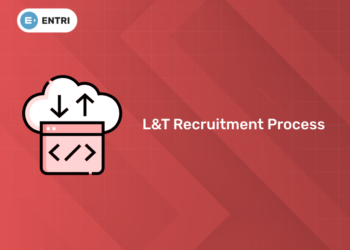Table of Contents
Stockbrokers serve as intermediaries between stock exchanges and investors, allowing them to participate in the fascinating world of the stock market. Stockbrokers give customers access to public securities by executing buy and sell orders on their behalf. Depending on the range of services they provide, brokers might be classified as full-service or discount. But the main question is What does a Stockbroker do? Let us find answers for that!
What does a Stockbroker do: Introduction
The broking profession, which has its roots in early trading floors and joint-stock corporations, has changed dramatically in tandem with advances in technology and changes in regulations. Brokers now use electronic platforms and open-outcry exchanges with strong digital infrastructure to provide smooth transactions. Choosing a reliable broker is essential, and important considerations include fee structures, trading platforms, research capabilities, dependability, and customer support.
Want to learn how to select the best stockbroker? Learn from the Entri Forex trading course!
History of Stockbroker Firms at the Global Level
1: What is a stock?
The first accepted joint-stock firms were established in Europe in the early 1600s, which is when stock broking first emerged. The Dutch East India Company is credited with being the first to raise money for its commercial endeavours by issuing public stock. Stock changed rapidly from being a simple way to own a portion of a company’s profits to becoming a separate, tradable financial asset. With the emergence of stock exchanges throughout Europe in the 17th century, modern stock broking started to take shape.
The Dutch East India Company founded the first “modern” securities exchange, the Amsterdam Stock Exchange, in 1602, to offer a regulated market for the trading of stocks. The New York Stock Exchange debuted in 1792, whereas the London Stock Exchange was founded in 1698. In the 1800s, when the equities markets grew rapidly in tandem with the Industrial Revolution, stock broking began to emerge as a separate profession. In the middle of the 19th century, the telegraph transformed stock broking by making it possible to transmit buy and sell orders over great distances almost instantly.
Start Your Stock Market Journey Today!
Learn practical strategies, minimize risks, and grow your wealth confidently. Enroll now and take your first step toward financial success!
Know moreHistory of Stockbroker Firms in India
Organized stock trading in India dates back to the 1850s, when the Bombay Stock Market was founded in 1875, becoming the region’s first stock market. Brokers mostly dealt in government securities and bank shares during the 19th century. Before the 1980s, when economic deregulation led to a boom in the Indian stock markets, trading volumes were comparatively low. Stockbrokers were formally regulated by the Securities Contracts Regulation Act of 1956, which mandated that they register with exchanges to do business. As the securities markets’ regulator, the Securities and Exchange Board of India (SEBI) was founded in 1992 and instituted regulations about stockbrokers’ registration, accreditation, and behaviour.
This was a significant advancement. A few years later, in 1993, the National Stock Exchange (NSE) replaced the previous open outcry system with computerized screen-based trading, which increased efficiency and transparency. Two other significant developments were the dematerialization of shares through depositories like NSDL and CDSL, which abolished physical share certificates, and the liberalization of broker commissions in 1996, which allowed bargain brokers to emerge and push commission prices down. With the high rate of mobile penetration in India, internet and smartphone-based trading platforms also gained a lot of traction, increasing the accessibility for retail investors.
Who Is a Stockbroker?
A stockbroker is a financial advisor who places trades on behalf of customers. Investment advisors and registered representatives (RRs) are other names for stockbrokers. The majority of stockbrokers are employed by brokerage firms, where they manage accounts for both individual and institutional clients. Stockbrokers typically receive commission payments, though each employer has different pay structures.
Stockbrokers are another term for brokerage firms and broker-dealer corporations. These consist of discount and full-service brokers who only carry out trades and don’t provide personalized investing advice. At least when it comes to their most basic service, the majority of internet brokers are discount brokers, meaning that trades are conducted either for free or at a minimal fixed-price commission. Robo-advisors, which automate the purchasing and selling process, are provided by numerous internet brokers.
Qualifications for a Stockbroker
Generally, stockbrokers need a bachelor’s degree in business administration or finance. Working in the field requires having a solid understanding of accounting procedures, economic and monetary fundamentals, financial planning, financial forecasting, and financial rules and regulations. Strong mathematical, computational, and statistical skills are also required.
A stockbroker needs to pass the General Securities Representative Exam (FINRA) administered by the Financial Industry Regulatory Authority. A Self-Regulatory Organization (SRO) or a FINRA member business must provide funding for an individual.
Global certifications are also in high demand as indicators of credibility and financial intelligence. The designations of chartered financial analyst (CFA) and certified financial planner (CFP) are two examples.
A stockbroker can start as an intern in college and gain experience on the job by working for a brokerage company in any capacity. However, to work as a stockbroker, one needs to be knowledgeable about financial market regulations and accounting standards.
Want to become a stockbroker? The first step is to learn the basics of stock trading. But where can we learn these from? Entri is providing an online stock trading course that will help you learn stock trading from scratch. Entri stock market has many benefits such as post-market sessions, practical trading support, live sessions, mentor support etc.
| Learn the Stock Market in your Mother Tongue | |
| Stock Market Course in Malayalam | |
| Stock Market Course in Tamil | |
| Stock Market Course in Kannada |
Licenses Required for a Stockbroker in Foreign Countries
In the United States, registered brokers need to be sponsored by a registered investment firm and possess the FINRA Series 7 and Series 63 or 66 licenses. In the US, floor brokers are also required to be members of the stock exchange on which they are employed.
Potential stockbrokers in Canada must be working for a brokerage business at the time of application and must pass the Investment Advisor Training Program (IATP), the Conduct and Practices Handbook (CPH), and the Canadian Securities Course (CSC).
In Hong Kong, candidates need to be employed by a brokerage company with a license and clear three exams administered by the Hong Kong Securities Institute (HKSI). Even after passing the test, candidates still need to have the financial regulator’s approval to be granted a license.
The Institute of Banking and Finance administers four exams, Modules 1A, 5, 6, and 6A, which must be passed to become a trading representative in Singapore. The Singapore Exchange (SGX) and the Monetary Authority of Singapore (MAS) are in charge of licensing.
Stockbroking is highly regulated in the UK, and brokers are required to have qualifications from the Financial Conduct Authority (FCA). The particular responsibilities expected of the employer and broker will determine the exact credentials.
Licenses Required for a Stockbroker in India
The regulatory organization in charge of the Indian securities market is called the Securities and Exchange Board of India (SEBI). In India, you need to have a license from SEBI to work as a stockbroker.
Getting certified by the National Institute of Securities Markets (NISM) is the first step towards getting a SEBI license. If you want to specialize in a particular area of the securities market, there are multiple NISM certification examinations available.
The NISM Series VIII: Equity Derivatives Certification Examination is the most popular NISM certification test for stockbrokers. The fundamentals of equity derivatives and their use in the Indian securities market are covered in this test.
You will then need to register as a stock broker with SEBI after completing the NISM certification exam. To accomplish this, you will need to submit an application form and all required supporting documentation, including your educational background, employment experience, and NISM certification.
A Certificate of Registration (CoR) from SEBI is required for stockbrokers and sub-brokers to engage in trading. No stockbroker or sub-broker will be permitted to operate unless a valid CoR from SEBI is in place, according to stock exchange norms. Sub-brokers can also register with SEBI in the same way.
Start Your Stock Market Journey Today!
Learn practical strategies, minimize risks, and grow your wealth confidently. Enroll now and take your first step toward financial success!
Know moreWhat does a Stockbroker do?
An individual with a license to execute buy and sell orders for stocks, bonds, commodities, and other assets on behalf of clients is known as a stockbroker. Stockbrokers arrange trades on stock exchanges such as the National Stock Exchange (NSE) and the Bombay Stock Exchange (BSE). They work for brokerage firms or investment banks. In the Indian stock market, they act as a middleman between buyers and sellers.
A stockbroker’s primary duties include trading and offering advice on investments based on investigation and analysis. When a client wants to invest in the stock market, they will work with a stockbroker to assist them in placing transactions and gradually creating a profitable portfolio.
Before making any recommendations, the stockbroker will evaluate the client’s financial status, time horizon, and risk tolerance. The broker can use this information to help the customer choose a suitable asset allocation and investing plan.
Investors are capable of buying shares directly from their issuer, but they cannot buy or sell securities directly on a stock exchange. For them to trade stocks on their behalf, they must get in touch with specific brokers, broker-dealers, or stockbroker organizations. Apart from carrying out trades, their duties also include offering financial advising and investment management services. Nonetheless, the ability to trade directly on exchanges is granted to those who are members of stock exchanges or stockbroking companies.
Latest Developments in Roles of Stockbrokers
Discount brokers are now able to offer online services with quick, automated, and inexpensive market access because of the development of the internet and associated technological advancements. More recently, programs that support fractional share purchases, such as SoFi and Robinhood, have catered to micro-investors. The majority of accounts in the markets today are held by discount brokers and are maintained by the account owners.
Discount broker organizations employ brokers as branch officers in a physical location or as voice brokers, who work over the phone and are accessible to answer quick inquiries. They might also confer with customers who have subscribed to the online broker’s premium tiers.
Comparatively speaking, fewer stockbrokers are employed by investment banks or niche brokerage houses. These businesses serve high-net-worth individuals (HNWI) and institutional clients by handling big, special orders.
Robo-advisers, which employ algorithmic investment strategies through web or mobile app interfaces, are another recent advancement in broker services. The low level of individual involvement helps to maintain low fees.
Also Read: How to Choose a Stockbroker (Complete Guide)
Job Profile of Stockbrokers
The main duties imparted to the role of stockbrokers are listed below.
- Purchasing and selling of stocks, shares, and other assets on behalf of investors
- Examining and evaluating financial statements
- Giving consumers financial advice based on current market conditions
- Taking care of investors’ investment portfolios
- Keeping up with the most recent stock market news and developments
- Advising customers about possible financial prospects
Types of Stockbrokers
There are different types of stockbrokers for you to choose from according to the services you wish to have. Different types of stockbrokers are listed below.
Traditional or Full-time Brokers
Full-time Brokers provide their clients with a wide range of goods and services. Securities trading, investment advising, retirement planning, portfolio management, capital gains taxation, and other related activities are included in these services. Full-time stockbrokers have high commissions, however considering the range of services they offer, this expense may be justified.
As previously stated, these brokers undergo extensive training and exams to be hired, and as a result, they have an extensive understanding of the stock market. They have the necessary training; thus, they can place a bid on your behalf, manage your portfolio to maximize profits and reduce risks.
Discount Brokers
The majority of brokers in the group are discount or internet stockbrokers. In addition to being reasonably priced, they also provide time and location utility, which is convenient for the general public. Market players can conduct their investments over the Internet without having to see discount brokers in person.
Discount brokers are another way for investors with little extra cash to begin participating in the stock market. For businesses and people who can afford large investment corporations and charges, discount brokers may be a less advantageous option because they do not always have the same level of knowledge as regular brokers.
No Advice Stockbroker
There are no extra services that this group of registered representatives provides in comparison to the other two categories. Additionally, they don’t advise or counsel clients on what investments to make. Rather, they serve as a middleman between buyers and sellers of securities on behalf of their clients.
The finest illustration of a no-service broker is an internet stockbroker. They cater their services specifically to day traders who are active and can manage and execute orders online for a low commission.
Jobbers
These brokers operate independently and trade securities for their benefit rather than on behalf of other investors. They are not allowed to trade under another person’s name and are unable to charge commissions to third parties.
They provide quotes for two different prices on stocks: a buy price quote and a sale price quote. Their profit margin is the difference between these two prices.
Arbitrageurs
It is known that some stockbrokers buy stocks at a discount from one stock exchange and resell them at a premium on another stock exchange.
Commission and fees of Stockbrokers
The usual method of payment for stockbrokers is a commission on each trade. In the past, while buying or selling stocks, investors had to pay a broker a commission.
Although human stockbrokers at full-service brokerage firms still operate in this manner, investors who oversee their brokerage accounts and utilize internet brokers to purchase and sell securities can now do so without paying a fee provided they select the right broker. Without charging commissions, brokers profit from investor assets in other ways, usually through charging interest on monies left in investor accounts. A broker sweeps the modest amount of cash held in most investment accounts into an interest-bearing deposit account. The brokerage business keeps the majority of the interest, with only a small amount going to the investor.
To earn a small fee for each trade, brokers often sell trades to market makers. Although this is rarely noticed by investors, there are situations where it can cause a modest increase in trade cost and delay trade execution. A broker that routes trade orders based on price, like Interactive Brokers, may be preferred by high-volume traders.
Commission Structure in the Indian Market
Percentage-based commission and transaction costs are the two main ways that stockbrokers in India get paid. Whereas the latter comprises regulatory fees and exchange transaction charges, the former only entails a percentage of the transaction value. Let’s take an example where you choose to purchase 100 shares of a company through a stockbroker for Rs. 200 each share. The entire commission, if the broker charges a 0.5% commission, would be Rs. 100 (0.5% of Rs. 20,000).
How much commission an Indian stockbroker receives depends on several things. Because of the number of deals, high-frequency trading can increase earnings. The kind of securities traded, such as stocks, derivatives, or commodities, also affects profitability. Higher commissions are also a result of larger transactions.
Salary of Stockbrokers in INR
According to internet sources, in India, the average annual compensation for a stockbroker is ₹60,74,688. In India, a stockbroker typically receives an additional monetary compensation of ₹57,74,688, ranging from ₹55,66,118 to ₹59,83,258.
Want to become a stockbroker? Learn the basics of stock market with the Entri app!
What does a Stockbroker do: Conclusion
The middlemen who handle transactions between exchanges and investors are known as stockbrokers. They often hold a college degree in finance or business administration and must hold a license from the Financial Industry Regulatory Authority. To provide clients with individualized investment strategies, they also serve as advisors and educate themselves on securities.
Start Your Stock Market Journey Today!
Learn practical strategies, minimize risks, and grow your wealth confidently. Enroll now and take your first step toward financial success!
Know moreFrequently Asked Questions
How do you define a robo advisor?
Robo-advisors are automated internet systems that offer portfolio management and investment advice with little to no human involvement. They provide retail investors with personalized investment recommendations, portfolio development, rebalancing, and optimization based on their risk tolerance, time horizon, and financial objectives through the use of technology and algorithms. The goal of robo-advisors is to provide inexpensive, simple access to investing and wealth management for the general public.
Is stock advisory service offered by stockbrokers?
No, a stockbroker does not normally offer individualized stock consulting services; instead, they help clients buy and sell stocks. Not every kind of stockbroker is qualified to offer stock advice. It is contingent upon their service offerings and business approach. In India, there are two primary categories of stockbrokers: discount brokers and full-service brokers. Reputable full-service brokers with specialized research teams that offer clients stock advisory services include ICICI Direct, HDFC Securities, Kotak Securities, Motilal Oswal, and IIFL Securities.
What Effects Has the Internet's Development Had on the Stock Market?
The proliferation of online investment platforms and stock brokers is evidence of the significant influence the internet has had on the stock market. In the past, only wealthy people could trade stocks by paying full-time brokers huge commissions. However, the stock market has risen to a far more convenient level since share stockbrokers and the stock market became so easily accessible online.
How does one become a stockbroker?
You have to be a citizen of India and be older than 21. You need to have completed at least 10 + 2 or Higher Secondary College to work as a stock trader. Additionally, he needs to pass the General Securities Representative Exam (FINRA) administered by the Financial Industry Regulatory Authority.
A minimum of two years of experience working as a remisier, partner, authorized assistant, authorized clerk, or apprentice to a stockbroker is required.
How should I choose a stockbroker?
The following qualities can help you select the best stockbroker:
- Look at the commissions associated with the investments you plan to use the most.
- Seek out brokers with a solid reputation for dependability.
- Be mindful of minimum account balances.
- Pay attention to any account fees.
- Analyze the specifics of execution and price.
- Think about the following: features, tools, and education.
Which abilities are necessary for a stockbroker?
A stockbroker needs to be knowledgeable about financial laws, tax rules, accounting concepts, planning, reporting, forecasting, and other related topics. The individual should also feel at ease working with statistics, calculations, and numbers.
Do stockbrokers solely make money from commissions?
Even though commissions are a significant source of income, some brokers could charge extra for other services they provide. Advisory services that charge a fee are also growing increasingly widespread.
Can I bargain with a stockbroker about the commission?
Negotiation may be possible in some circumstances, particularly for high-value transactions or active dealers. It’s critical to talk about terms upfront.
What Distinguishes a Full-Service Broker from a Discount Broker?
A discount broker would typically just buy and sell on behalf of their clients. A full-service broker, on the other hand, would offer a wider range of financial services, including research, counselling, portfolio management, and more. Modern discount brokers set themselves apart by offering research and additional services in addition to pure execution, as internet brokerages have driven commissions to zero.











